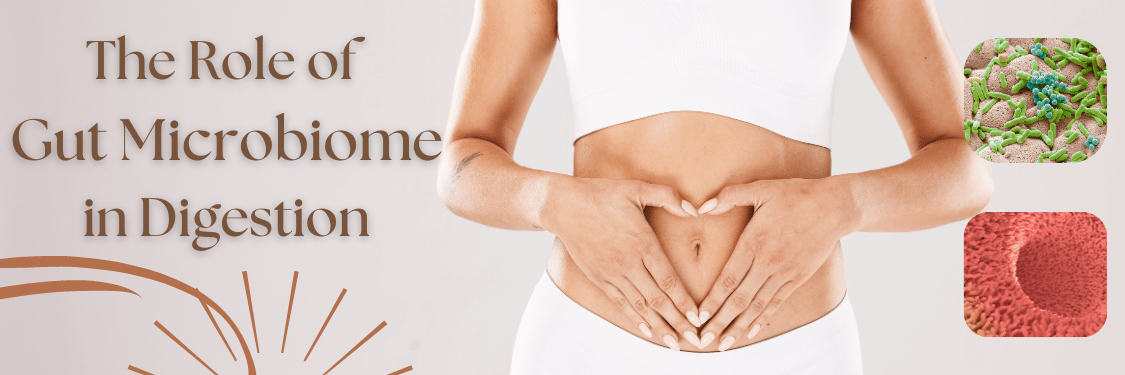Gut health is a cornerstone of overall well-being, influencing not only digestion but also immune function, mental health, and more. Central to gut health is the gut microbiome, a diverse community of trillions of microorganisms that reside in our digestive tract. Lets take a close look at the functions of the gut, the role of the gut microbiome, and how it helps manage digestive issues.
Functions of the Gut
The gut, or gastrointestinal (GI) tract, is a complex system responsible for breaking down food, absorbing nutrients, and expelling waste. It includes several key organs:
- Mouth: Begins the digestive process by mechanically breaking down food and mixing it with saliva.
- Esophagus: Transports food to the stomach.
- Stomach: Uses acids and enzymes to further break down food.
- Small Intestine: Absorbs nutrients into the bloodstream.
- Large Intestine: Absorbs water and forms waste products for excretion
The Gut Microbiome and Its Role
The gut microbiome consists of bacteria, viruses, fungi, and other microbes that play a crucial role in digestion and overall health. Here s how it helps:
- Digesting Food: The microbiome helps break down complex carbohydrates, fibers, and proteins that the human body cannot digest on its own. This process produces short-chain fatty acids (SCFAs), which are vital for gut health2.
- Producing Essential Nutrients: Certain gut bacteria synthesize essential vitamins and nutrients, such as vitamin K and B vitamins (B12, B1, B9). These nutrients are crucial for blood clotting, energy production, and overall cellular function.
- Supporting Immune Function: The gut microbiome helps train the immune system to distinguish between harmful pathogens and beneficial microbes, reducing the risk of infections and autoimmune diseases.
Managing Digestive Issues
A healthy gut microbiome can alleviate various digestive issues, including:
- Bloating: Imbalances in gut bacteria can lead to excessive gas production, causing bloating. Probiotics and a diet rich in fiber can help restore balance and reduce bloating.
- Constipation: Certain bacteria produce SCFAs that stimulate gut motility, helping to prevent constipation. Prebiotics, found in foods like garlic and onions, can promote the growth of these beneficial bacteria.
- Diarrhea: Probiotics can help restore the balance of gut bacteria disrupted by infections or antibiotics, reducing the severity and duration of diarrhea.
- Irritable Bowel Syndrome (IBS): Research suggests that gut dysbiosis (an imbalance in the gut microbiome) is linked to IBS. Probiotics and dietary changes can help manage symptoms by restoring microbial balance.
Recent Studies and Findings
Recent studies have highlighted the importance of a diverse and balanced gut microbiome. For instance, a study published in Nature found that individuals with a higher diversity of gut bacteria had a lower risk of developing chronic diseases like obesity and diabetes. Another study from Stanford Medicine showed that a diet rich in fermented foods increased microbiome diversity and reduced inflammation.
Limitations of Our Understanding
Despite significant advancements, our understanding of the gut microbiome is still evolving. The complexity and variability of the microbiome make it challenging to identify specific microbial compositions that are universally beneficial. Additionally, while correlations between the microbiome and various health conditions have been established, causation is often difficult to prove.

